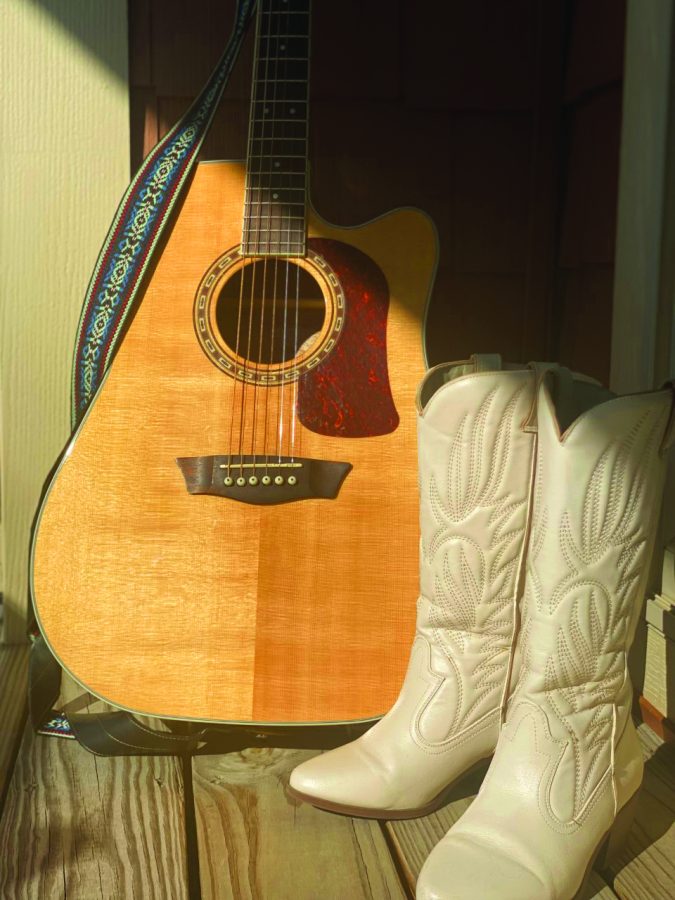‘Anything but country’
Country music, though garnering massive amounts of tourism in Nashville, continues to be disliked by many music fans.
October 11, 2022
Anything but country.”
Whenever surveying musical tastes, this is the typical response I’m given, and hardly anyone shares any disagreement.
The genre has taken over charts, and break-out country stars like Morgan Wallen, Luke Combs and Kane Brown have dominated Billboard Year-End charts and sold out arenas.
Meanwhile, Nashville, the heart of country music, is one of the biggest tourist destinations in the world, roping in roughly 14 million yearly visitors clad in cowboy boots and shiny buckles.
Still, the genre remains under harsh criticism from many, from casual Spotify-users to music junkies.
A 2015 study conducted by a University of Notre Dame professor found that the dislike for country music has increased while their dislike for other genres decreased.
But is all this bitterness warranted?
One of the most common qualms people have with country music is that it’s centered around only three topics: girls, beer and trucks.
This is true of a subgenre of country I like to call “Bro-Country,” which, admittedly, doesn’t stray too far from this stereotype.
Bro-Country is what turns people wrongfully away from country music with songs like Toby Keith’s “Red Solo Cup” or Luke Bryan’s “Country Girl (Shake It For Me)”.
From the track titles alone, you can already nearly guarantee that there is a very specific audience this music is targeted for, and I can’t say I blame people for being turned off by it.
Throughout the decade or so, these are the songs that have taken over country radio, giving a false sense of the genre’s true essence.
The genre historically has its roots in folk and blues, often written and sung by the working-class looking for a creative way to share their struggles.
It wasn’t uncommon for early country music to include themes of struggling with alcoholism, poor mental health and, of course, heartbreak.
Merle Haggard’s 1973 hit “If We Make it Through December” narrates the story of a factory worker who was laid off before the holiday season and is wracked with guilt because he can’t afford a Christmas present to his daughter.
The story was reflective of the tanking economy at the time as unemployment and inflation rates increased.
In 1979, Hank Williams Jr. released “Family Tradition,” a song about rebellion and substance abuse that still lives on as one of country’s biggest middle fingers to everyone — even itself.
During this time, the war on drugs had successfully stigmatized people with issues of substance abuse, and this song let them know they weren’t the only ones struggling.
Even into the ‘90s, female artists like Martina McBride and Shania Twain shared songs covering a multitude of topics from domestic abuse to taking pride in femininity.
Songs like these reflected the rise of the third wave of feminism that erupted in the mid ‘90s.
Listeners resonated because these songs were written from a genuine place and gave solace to those with a similar experience.
But this doesn’t mean that the only country music worth listening to was created nearly half a century ago.
Sure, contemporary country radio hits may be off-putting to music fans who crave something with a bit more substance, but there are many gems released every day.
A few years ago, it may have taken a bit of digging to find such gems.
Now, it seems as though the country music industry has recognized people’s desire for authentic storytelling with a wider range of themes.
It can be nauseating to listen to Bro-Country’s biggest stars pander and spout buzzwords to the working-class knowing the artist has never even done their own grocery shopping.
This is why artists like Zach Bryan, Sturgill Simpson and Tyler Childers have erupted in popularity over the past few years.
Swapping out recaps of yesterday’s tailgate, these artists write everything from stories of finding their identity to odes to the dead.
Zach Bryan’s 2019 break-out hit “Heading South” tells the tale of a young outcast rebelling against his family and hometown in search of peace.
The song’s raw, emotional vocals on top of only an acoustic guitar stood out effortlessly against a mass of over-produced country hits that just tried too hard.
Other artists are following suit, even challenging country music’s historical stubbornness to popularize the music of marginalized groups.
Modern Black country stars include Jimmie Allen, Mickey Guyton, Kane Brown and Willie Jones.
Similarly, more light is being shone on gay country artists, including Lil Nas X, T.J. Osbourne and Chely Wright.
Sure, country music is still far from perfect, especially when it comes to representation of diversity. This is true of most, if not all, genres of music.
However, the industry seems to be listening to the audiences’ demand for music with more substance, and it looks like a shift is coming.
By the looks of it, this may bring music that more closely resembles the roots of country music through a modern lens.
So, before you immediately write off a whole genre, dig deeper than Billboard’s Top 100 — you might be pleasantly surprised.














